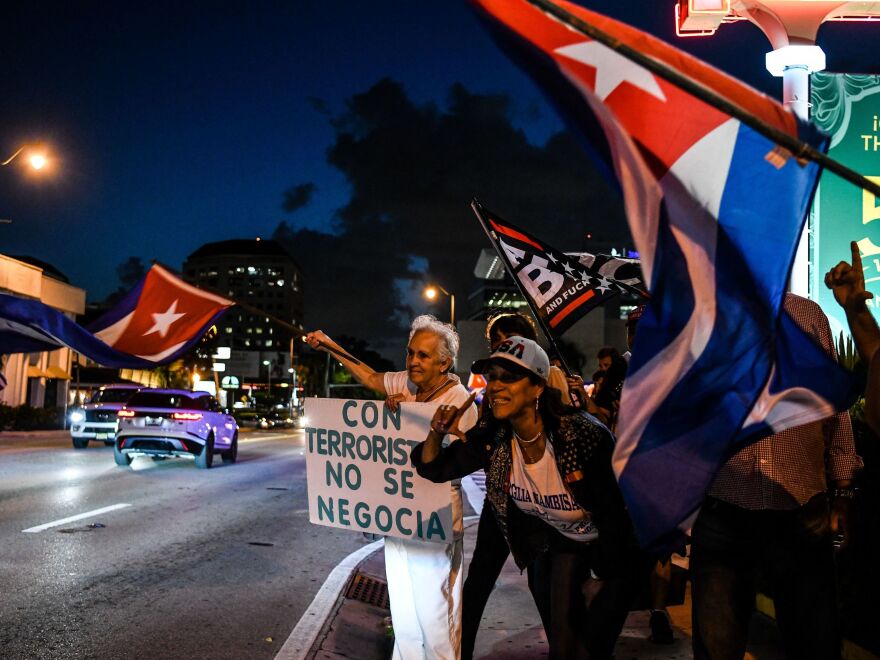The Biden administration plans to make it easier for families to visit relatives in Cuba and increase visa processing on the island, reversing some of former President Trump's harsh policies toward the island government.
The move comes after a long review of U.S.-Cuba relations and fulfills some of President Biden's campaign promises.
"The measures today again are practical steps that we are taking to address the humanitarian situation and to respond to the needs of the Cuban people," a senior administration official said. "President Biden is also fulfilling his commitment to the Cuban-American community and their family members in Cuba by announcing measures in four key areas which we plan to implement in the coming weeks."
Just a year ago, the Biden administration slapped additional sanctions against the Cuban officials following widespread crackdowns of large antigovernment protests.
In addition to reinstating the Cuba Family Reunification Parole program and increasing consular services, the administration is also lifting a $1,000 cap on family remittances, increasing support for Cuban entrepreneurs and expanding authorized travel.
The announcement, however, fell short of previous polices enacted by the Obama administration.
Individual "people-to-people" travel will not be reinstated, for example.
A senior administration official said the U.S. also would not remove entities from the Cuba Restricted List, the list of Cuban government- and military-aligned companies that U.S. companies are blocked from doing business with.
A senior administration official said the moves are aimed at helping the Cuban people, but the timing of the announcement also raised questions whether the U.S. is trying to curry favor with leftist leaders in the region.
The U.S. is hosting this year's Summit of the America and some leaders in the region have threatened not to attend unless Cuba, Venezuela and Nicaragua are also invited.
Mark Feierstein, a former senior adviser at the U.S. Agency for International Development under Biden, said the plans were under way long before the controversy emerged.
He called them a "big change" and "tilting back" toward the Obama era in line with Biden campaign promises. But he acknowledged the timing of the announcement can't be overlooked.
He noted that some Biden officials will soon be traveling to Mexico to meet with President Andres Manuel Lopez Obrador, who is threatening not to attend.
"It's possible this is a signal to Mexico and others that the administration is prepared to revise the policy toward Cuba, but not necessarily willing to invite Cuba to the summit," he said.
Cuban officials called the moves "positive, but of a very limited scope."
"These announcements in no way modify the blockade or the main measures of economic siege adopted by Trump," the Cuban Foreign ministry said in a statement.
A key Democrat also released a concerning statement.
Sen. Bob Menendez of New Jersey, chair of the Senate Foreign Relations Committee, criticized the decision, saying the administration was authorizing "visits akin to tourism."
"To be clear, those who still believe that increasing travel will breed democracy in Cuba are simply in a state of denial," Menendez said in a statement.
In response to Menendez's concerns, the senior administration official said the administration will ensure that "travel is purposeful and in accordance with U.S. law."
Copyright 2022 NPR. To see more, visit https://www.npr.org.








